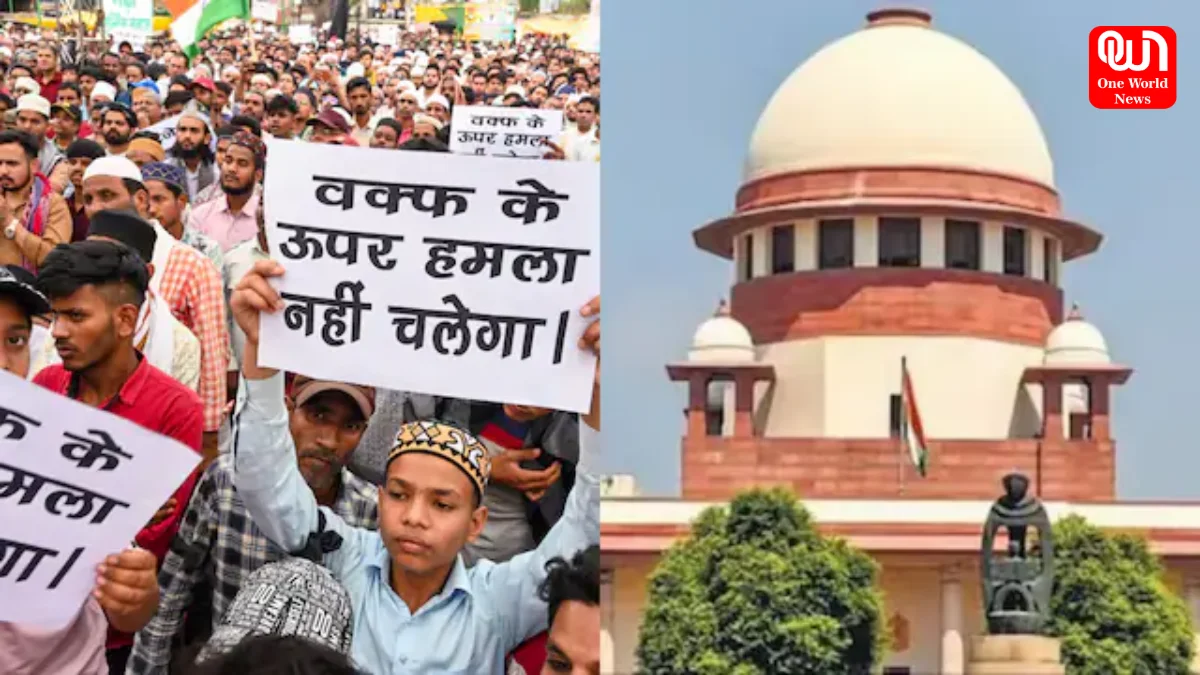70 Waqf Petitions in Supreme Court, Government Confident on Law
The Supreme Court of India is scheduled to hear a consolidated batch of 73 petitions on April 16, 2025 regarding the constitutional validity of the Waqf (Amendment) Act, 2025.
Waqf Act Challenge: SC Hears Petitions; Govt Confident on Law
The Supreme Court of India is scheduled to hear a consolidated batch of 73 petitions on April 16, 2025 regarding the constitutional validity of the Waqf (Amendment) Act, 2025. These petitions were filed by a disparate group of petitioners including politicians, associations, and civil rights groups, alleging that these amendments violate the rights of the Muslim community and impinge on the autonomy of Waqf properties.
Key Provisions and Points of Contention
The Waqf (Amendment) Act, 2025, brings a remarkable change in the administration of Waqf properties:
• Non-Muslims in Waqf Committees: The Act allows non-Muslims in Waqf Boards, which critics allege will dilute the religious character of these institutions.
• Enhanced Government Control: The Act increases the power of government officials such as district collectors to determine the ownership of disputed Waqf properties, raising concerns over its possible misuse and interference for political ends.
• Removal of the Provision on Waqf by User: The Act repeals the provision that recognized the periodically-used property of the Muslim community for religious proposition as Waqf, contrary to opponents who alarmingly sense this would lead to losing historically-important sites.
• Reliance on the Limitation Act: The foreign act undermined the efficacy of Government Boards to claim the land and properties that have been encroached by escrowing Section 107 of the Act in favor of Limitation Act-1963.
Defense and Support of the Government
Kiren Rijiju, Union Minister for Minority Affairs, is confident that the Supreme Court will uphold the Act, asserting that the amendments promote transparency and accountability in Waqf property administration. He also noted that the law was subjected to an exhaustive examination by various relevant bodies, including a Joint Parliamentary Committee.
The law is supported by seven states, including Madhya Pradesh, Chhattisgarh, and Rajasthan, which have intervened on behalf of the Act in the Supreme Court. They aver that the amendments are intended to broaden the representation in Waqf Boards and improve their governance.
Read More: CISF Raising Day 2025: Celebrating 55 Years of Service & Security on March 10
Opposition and Civil Society Concerns
The Congress, Trinamool Congress, and All India Majlis-e-Ittehad-ul-Muslimeen (AIMIM) parties and organizations such as the All India Muslim Personal Law Board have voiced concern that the Act violates the constitutional rights of Muslims and could be a pathway for the expropriation of Waqf properties. They maintain that the inclusion of non-Muslim members and increased government oversight could jeopardize the institutions’ religious independence.
Judicial Proceedings
At 2 PM, the Supreme Court bench of Chief Justice Sanjiv Khanna, Justice Sanjay Kumar, and Justice K.V. Viswanathan will begin hearing the petitions. The outcome of the proceedings is expected to have a pronounced bearing on the governance of Waqf properties and the rights of the Muslim community in India.
The nation is watching intently as the Supreme Court goes into hearing of the constitutional challenges to the Waqf (Amendment) Act of 2025. The judgment will decide not only the future of Waqf property management but will also set precedent for legislating reform vis-a-vis the protection of minority rights in India.
We’re now on WhatsApp. Click to join.
Like this post?
Register at One World News to never miss out on videos, celeb interviews, and best reads.








